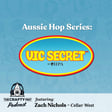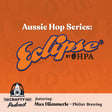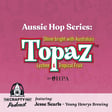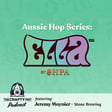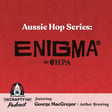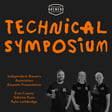
Everything Indie, All The Time.
Terms like “legend”, “iconic” and “trailblazer” get bandied around a lot, probably rather more than they should. Yet we doubt there would be anyone in the Australian beer industry who would quibble if we applied any – or all – of them to Jade Flavell and The Wheaty, the Thebarton pub she’s been running for more than two decades.
We sat down with Jade to reflect on her time in hospitality, and her passion for good beer (and whisky), “thinking drinking”, and celebrating independence.
That we joined her in the band room at the rear of the pub was highly appropriate too: the discussion of independence covered more than beer and hospo and took in the huge challenges facing independent music venues in the face of their own version of the multinational brewing and booze retail behemoths.
The conversation stretches back to Jade’s early days in Adelaide pubs, alongside the two mates with whom she’d take over Wheatsheaf Hotel – Trotty and Liz, and examines how drinking culture has come a fair way in the decades since yet still has distance left to run. Jade takes us through the transition from rundown, rotting pub to groundbreaking beer venue then award-winning brewpub, and to becoming The Wheaty’s “benevolent dictator” following Trotty’s passing and Liz’s decision to leave the business.
And she tells us about her intention, as guardian of the pub, to find a way to ensure it remains a home for great drinks and live music when the time comes to pass the baton.
Prior to the chat with Jade, and rather contrary to those discussions of independence, we kick off the show talking about the recent departure from Balter of Scotty Hargrave, head brewer and a founding member, five years after the sale to CUB, as well as the new brewery for students at Bendigo TAFE.
This week also sees us announce the first winners in our “Have You Done A Rallings?” campaign to highlight good beer citizens across Australia, and launch another campaign celebrating the country’s brewers. Brewery of the Month is presented by Bluestone Yeast, and you can find out more – and nominate your favourite breweries – via the link below.
Start of segments:
- 8:58 – Jade Flavell Part 1
- 35:29 – Have You Done A Rallings?
- 40:21 – Jade Flavell Part 2
Relevant links:
- The Wheaty
- Crafty's Advent Calendar – Wheaty Jade
- Keeping Live Music Alive
- Scotty Leaves Balter
- Bendigo's New Brewery
- Bluestone Yeast Brewery of the Month
- Have You Done A Rallings?
To find out more about supporting the show or otherwise partnering with The Crafty Pint, contact craig@craftypint.com.

